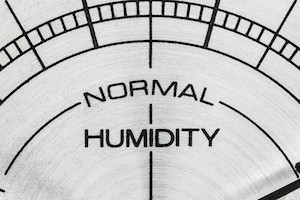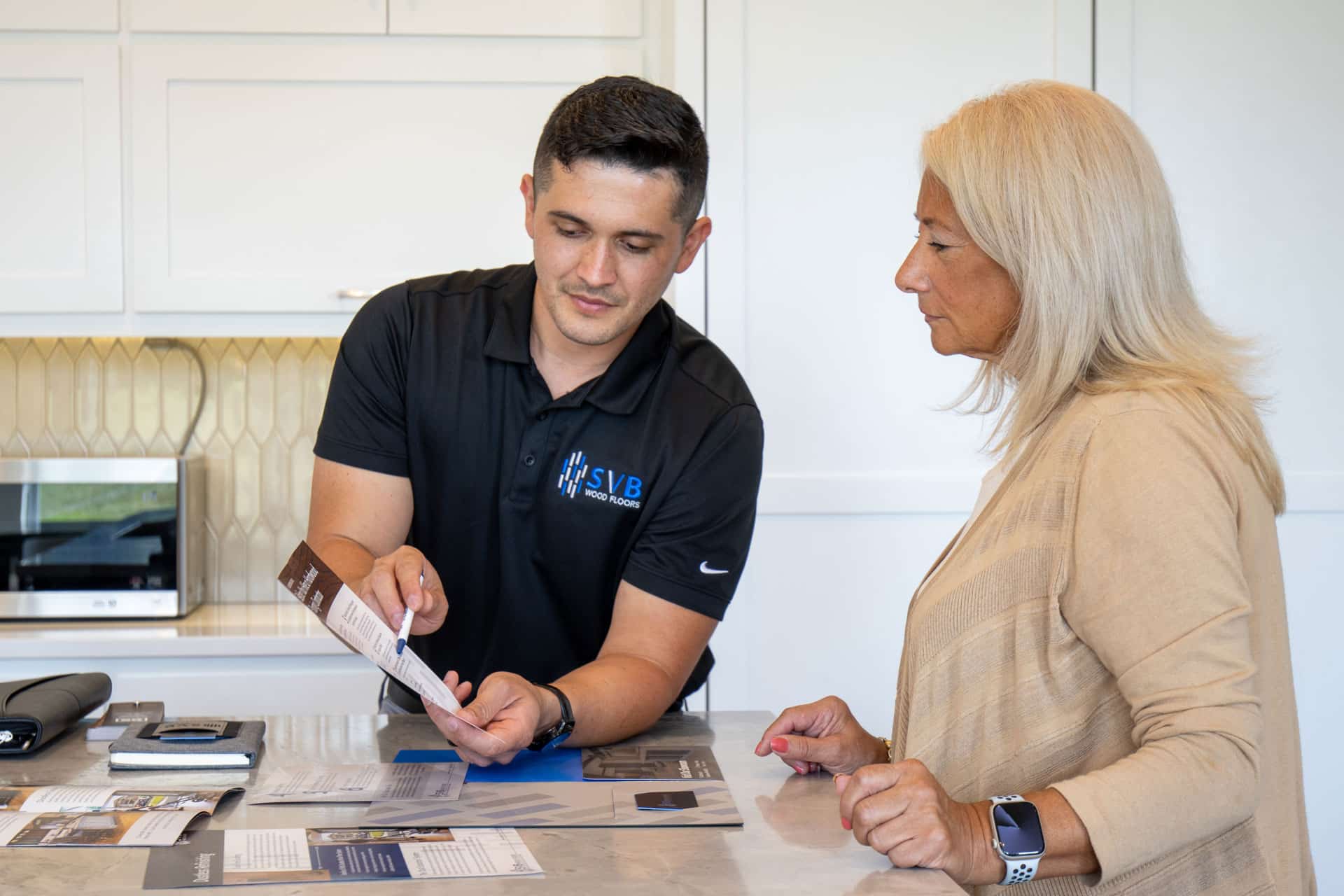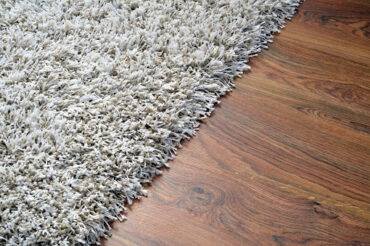 During the summer, all wood floors tend to expand because wood reacts to moisture. Air with a high moisture content (MC) or high relative humidity (RH) causes wood to gain moisture. Extreme moisture can cause cupping (when the edges raise higher than the middle of the wood planks) or even buckling. There are some things you can do to lessen the effect humidity has on your wood floor. The wood floor experts at SVB Wood Floors have come up with some ways to help you avoid this unwanted reaction.
During the summer, all wood floors tend to expand because wood reacts to moisture. Air with a high moisture content (MC) or high relative humidity (RH) causes wood to gain moisture. Extreme moisture can cause cupping (when the edges raise higher than the middle of the wood planks) or even buckling. There are some things you can do to lessen the effect humidity has on your wood floor. The wood floor experts at SVB Wood Floors have come up with some ways to help you avoid this unwanted reaction.
The Flooring You Choose Will React Differently to Moisture
There are some things you can control from the get-go that will lessen your wood floor’s reaction to moisture.
Acclimation – Obviously, the wood must be properly acclimated to the environment before it is installed. Any professional wood floor installation company will know this. When having your hardwood floors installed, make sure to ask how they ensure acclimation.
Plank Width – Another way to lessen the shrinking and swelling due to moisture is to choose narrower vs. wider planks. Because wood planks shrink more from side to side than end to end, narrower boards will shrink less than wide ones. There will still be some shrinking and swelling, but the gaps will be less noticeable between planks.
Wood Species – The species of wood you choose can also affect how drastically it will react to moisture. Certain species will fare better. Just ask us and we can guide you to the species of wood that are more stable.
Sawing Technique – How the wood is sawn will also affect how it reacts to its environment. Quarter sawn wood has a very straight grain pattern that lends itself to design and dimensional stability. It is a bit more expensive than regular straight-sawn planks.
Engineered Wood – Finally, engineered wood floors also offer more stability. Engineered wood is made up of a core of hardwood, plywood or HDF and a top layer of hardwood veneer that is glued on the top surface of the core. They are more stable because the multiple-ply plank counteracts twisting and remains flat and intact.
Ways to Control Moisture
If your wood floors are already installed, controlling the environment in your home is your best move. You want your home’s humidity to be between 35 and 55. In your home, you have warm, humid summer air and cool indoor surfaces. Moisture also sneaks in through crawl spaces and basement foundation walls, or from activities in your home (cooking, showering, etc.). Combine that with the fact that cooling the air raises its Relative Humidity, and the environment is anything but ideal for hardwood floors. Moisture is removed from indoor environments by two main mechanisms, air conditioners and dehumidifiers:
Air Conditioner – The main option for removing moisture is to use an air conditioner. A typical air conditioner uses about 25% of its energy to remove water from the air. But, remember, an air conditioner only removes moisture when it is running. Since an air conditioner is controlled by temperature, not moisture levels, once the indoor temperature is good, the AC shuts off. If the temperature outside is cool, but there is high humidity, the AC won’t be able to remove enough moisture. That’s where option number two comes in – dehumidifiers.
Dehumidifiers: The best solution for real humidity control in many homes is a central, or whole-house, dehumidifier. Good systems put close to 100% of their energy into removing moisture, and can handle up to around 6.5 pints per hour, every hour, regardless of mild weather or cool mornings when an AC won’t run much. They will also shut down when an AC can handle the moisture loads. Portable dehumidifiers can also help, but they typically don’t remove much more than about 2 pints per hour, and they use more energy than a good whole-house dehumidifier. You also don’t get good humidity control anywhere other than the room it is located in.
We hope this helps you to understand wood floors a little better so you can get the most out of yours. If you have any questions, feel free to call the wood floor experts at SVB Wood Floors at 816-965-8655.




